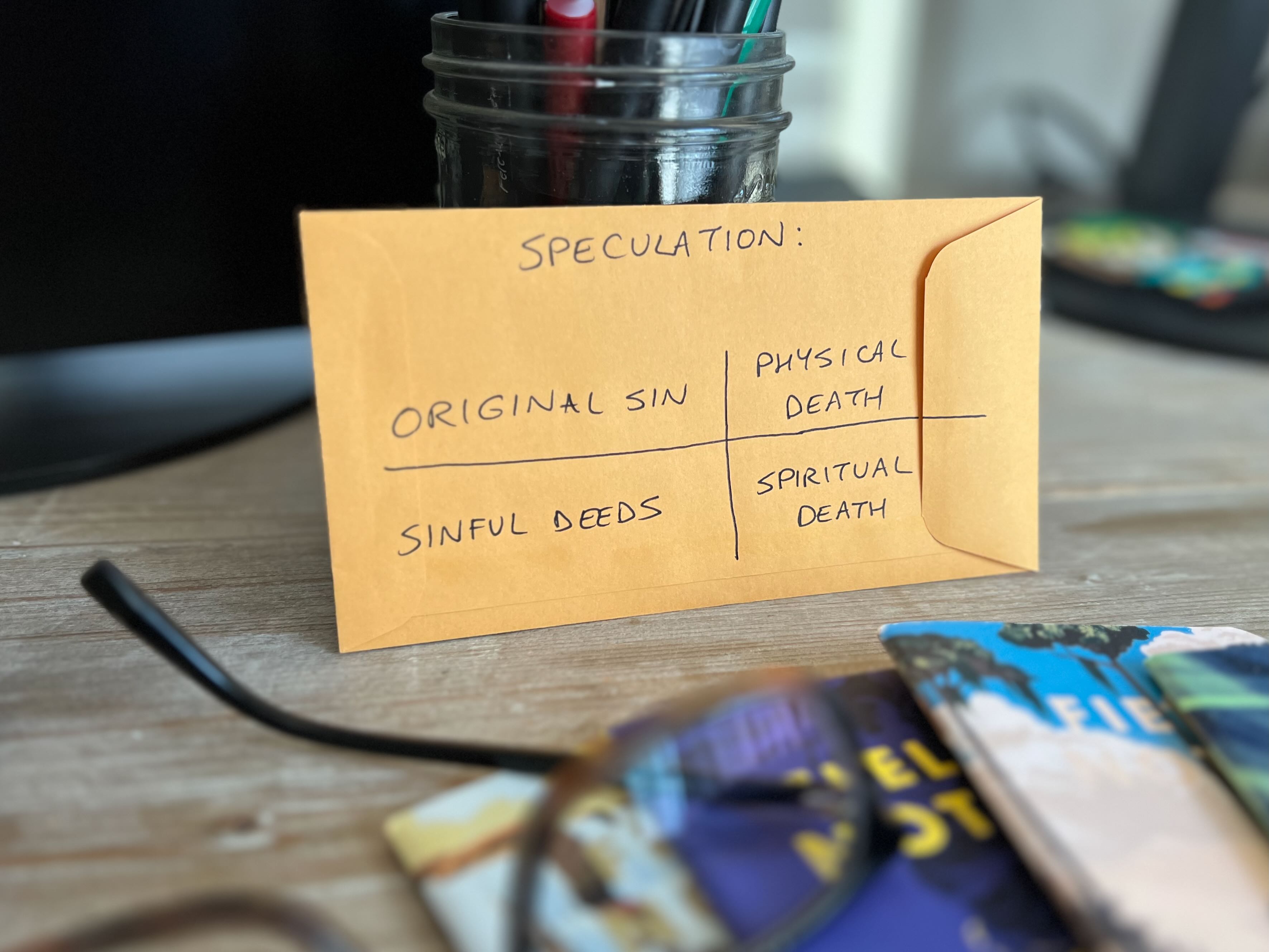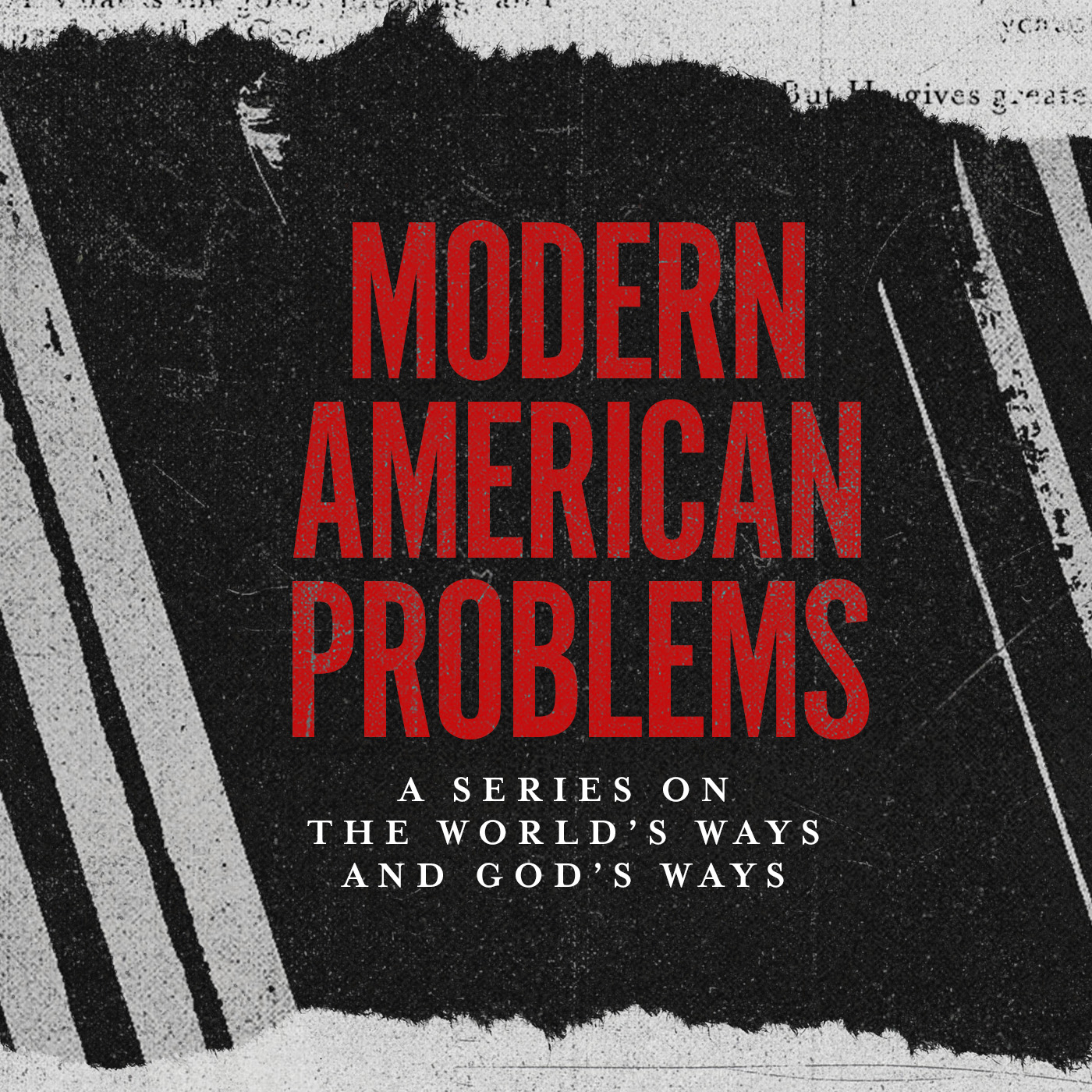I grabbed an offering envelope and wrote something on both sides. At the top of the envelope, on one side of it, I wrote the words “for sure” (or something similar) and then on the other side of the envelope, I wrote the word: “speculation.”
Under the words “for sure” I wrote down what I know with certainty regarding what the Bible says about this. I wrote words to this effect: “The Bible does not directly answer this question.”

I think this is an important place to start. Take, for example, the question: “What must I do to be saved?” That question is directly answered in Acts 16:30-31. In my opinion, “What happens when a baby dies?” is not like that.
Some people think it is. They notice that when David’s baby died in 2 Samuel 12, that David said, “Can I bring him back again? I’ll go to him, but he will never return to me.” (2 Sam. 12:23) Many people focus on the words, “I’ll go to him” and reason to themselves, “Certainly, David went to heaven when he died. So, obviously babies must go to heaven, since David claimed that he would see his baby again.”
However, it’s not that simple. The afterlife was not a fully-formed and well-taught doctrine during the Old Testament era. It isn’t until the New Testament that you have Bible verses talking clearly about people dying and going to places like heaven and hell. In the Old Testament, this issue was explained in more vague terms. Their understanding was that people went to “Sheol” when they died. Sheol wasn’t a technical term for heaven or hell, but a more general term that meant “grave” or “realm of the dead.”
So, when David says, “I’ll go to him” his words were likely not intended to be a teaching on heaven or hell, but rather David is claiming that he will one day die (go to the realm of the dead) whereas the baby will not be coming back to the realm of the living.
Once you know that, you are left with no other passages (that I am aware of) that would directly answer this question. So, in some ways, the honest Christian must answer this question with, “I don’t know for sure. The Bible doesn’t say.”
However, that is not all that can be said. There are other things that the Bible addresses that can point us in a direction, even if we don’t have absolute certainty.
So, on the other side of the envelope (the side labeled “speculation”), I drew a chart that looks like this:

The reason I used the phrase “original sin” is because the person I was talking to used the phrase as they were asking me the question. I don’t often use that phrase (it’s not in the Bible) and so I don’t know what phrase I would have used had the person asking me the question not supplied me with the term.
Regardless, I’m fairly certain that I believe in what most people are talking about when they use the term “original sin.” That is, there is some kind of human sinfulness passed down from generation to generation. Ephesians 2:3 says that all people are “by nature children under wrath” living in this world “in our fleshly desires.” This seems to be a strong indication that everyone is a sinner, but not simply a sinner - a sinner by nature. Additionally, Romans 5 declares that “sin entered the world through one man” referring to Adam. Not only that, but it further says that death entered into the world “through sin, in this way death spread to all men, because all sinned.”
You can read the whole chapter, but the gist seems to be that death is the result of sin (this connection is made clear one chapter later in Romans 6:23) and that this sin and death was brought into the world by Adam and was passed down to all other humans from him.
I would suggest that this is why babies die. They do not die for evil deeds that they have personally committed; many die too young for that to be possible. However, a propensity to sin and die is inherent with every human life, just like the propensity to breathe oxygen is part of our nature. These are traits we were all born with.
Well, does that mean the baby is a sinner and therefore goes to hell since they did not place their faith in Jesus Christ for the forgiveness of their sins? I would say to that, “not so fast.” While it is clear, in Scripture, that sin is the cause of death, and death and sin are inherited by everyone at birth (or before), I’m not sure that we can jump to “all babies are spiritually damned.”
When I look at the Bible, there are a few Scriptures that stand out to me as indications that this is not the case:
The first category of verses I would draw your attention to are the passages that describe the damned. For instance, Revelation 21 lists “cowards, unbelievers, vile, murderers, sexually immoral, sorcerers, idolators and all liars” as people who will partake in a lake of fire. 1 Corinthians 6 lists “sexually immoral people, idolaters, adulterers, anyone practicing homosexuality, thieves, greedy people, drunkards, verbally abusive people and swindlers” as the people who will not inherit God’s kingdom. I could be wrong, but these lists don’t seem to describe babies. It seems that these verses describe people who actually chose to sin, in addition to having sinful natures (as all humans do.)
In addition to those verses, we have Isaiah 7:13-16 which seems to indicate that there is an age (the number of years is not specified) when a child “knows to reject what is bad and choose what is good.” Therefore, the implication seems rather strong that there exists an age when a child is too young to reject what is bad and choose what is good.
Furthermore, Romans 1:18-21 teaches that people who partake in godlessness and unrighteousness are “without excuse” when it comes to God’s judgement. It says that they are without excuse because “God’s invisible attributes… have been clearly seen since the creation of the world being understood through what He has made.” This knowledge of God makes people responsible to “glorify Him as God” and to “show gratitude” to Him. However, the question is: are there people, such as babies, who have not clearly seen God’s invisible attributes as revealed in nature? And if so, are these people with excuse when it comes to God’s judgment? In other words, could a baby have an excuse as to why he or she did not glorify God or show gratitude with the way they lived their life? I think the answer is yes.
So, I added these words to the chart on the back of that envelope I mentioned earlier:

Now, you may remember this was written on the side of the envelope labeled, “speculation.” I’m not saying I am certain that this is true. Rather, I’m saying that while Scripture doesn’t directly answer this question, it does seem to connect physical death to our natural sinfulness, and it seems to connect God’s eternal judgment/punishment to the actions that were chosen by people who were old enough to make choices.
By the way, so as not to plagiarize, let me say that all of these arguments are things I’ve read elsewhere. I didn’t make them up. Some of the verses I listed above are used by people like John Piper and others when they have attempted to answer this same question. Even the four-box chart is one I found in an article online at some point (though I am unable to locate that website now.)
Ok, now back to the main point. What happens when a baby dies? In short, my answer to that question is: “I don’t know for sure, but I believe that they are not damned. I think they go to heaven.”
I’m even more certain that God is good. I’m certain that He never does anything wrong or unjust. I’m certain that He is trustworthy, with every part of this life.

